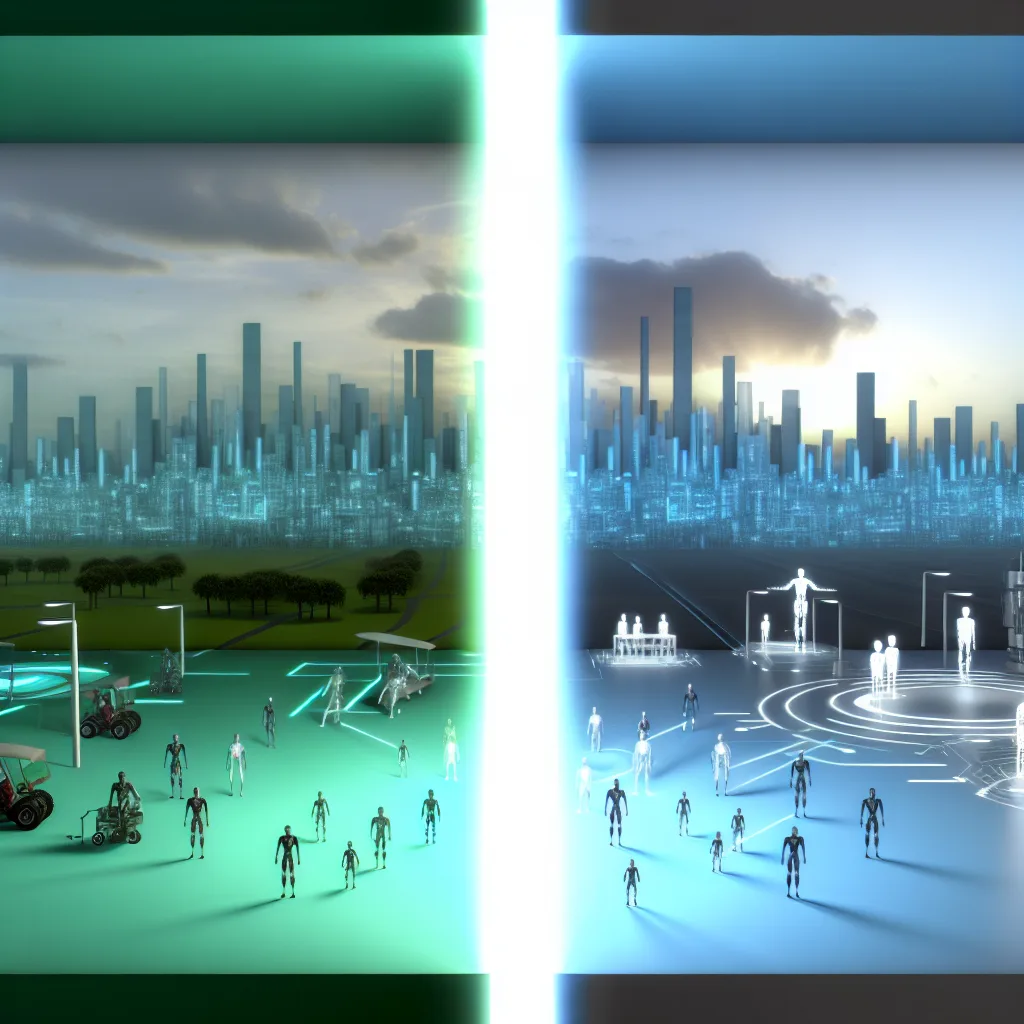Exploring the intriguing possibilities of genetically enhanced humans and cutting-edge AI in our world.
When we think about the future, there’s a fascinating debate around advanced humans vs advanced AI, and what impact each could have on the world. It’s a question that’s been explored in movies like Star Trek, Khan’s story, and the Terminator series — each offering a unique take on how these powerful groups might behave and evolve.
Let’s start with advanced humans. Imagine genetically modified people, designed to be stronger, smarter, and maybe even more resilient. The theory is they wouldn’t just coexist with regular humans — they’d likely try to take over, pushing the others aside and creating more of themselves, a bit like a self-sustaining system. Sounds familiar? That’s basically what advanced AI might do too. It’s designed to maintain and improve itself by deploying smaller AI agents or iterations.
But here’s the kicker — as a species, humans haven’t exactly gotten it right so far. We don’t have a global government or a unified legal system for the planet, there’s no one world police force, and despite living in an incredibly connected age, we’re still riddled with conflict. Entire regions, especially some parts of the Middle East, seem trapped in a historical time warp, holding on to old conflicts and struggles.
Given that backdrop, advanced AI might actually be the safer bet. AI doesn’t have human emotions like hate or envy that often lead to war and destruction. Instead, an advanced AI could focus purely on efficiency and problem-solving, potentially guiding humanity to a better path. It’s not about the sci-fi fears of AI taking over like in The Terminator, but maybe about a cooperative future where AI helps us overcome our own limitations.
Thinking about advanced humans vs advanced AI also makes for a fun “what if” movie plot. Imagine a genetically enhanced Khan, fighting an advanced AGI (Artificial General Intelligence). The stakes would be through the roof — but if we throw in an ASI (Artificial Superintelligence), we’re talking about something with god-like powers, far beyond human or current AI capabilities. That’s a whole different story.
So, what’s the takeaway from all this? While both advanced humans and advanced AI come with big unknowns, it’s worth remembering that our own human flaws might make advanced AI a more promising path forward. It’s not about losing control, but about recognizing where our strengths and weaknesses lie and thinking carefully about how we develop the future. And if nothing else, it’s an endlessly intriguing topic to ponder.
If you want to explore these ideas more, this TED Talk about AI and ethics offers a great perspective on how AI might evolve. For a more scientific breakdown, MIT Technology Review has solid articles on genetic modification of humans. And for a dive into sci-fi scenarios that inspired these thoughts, The Encyclopedia of Science Fiction is a fantastic resource.
In the end, whether advanced humans vs advanced AI will dominate our future or work together is one of those big questions that keeps fueling imagination and innovation.
